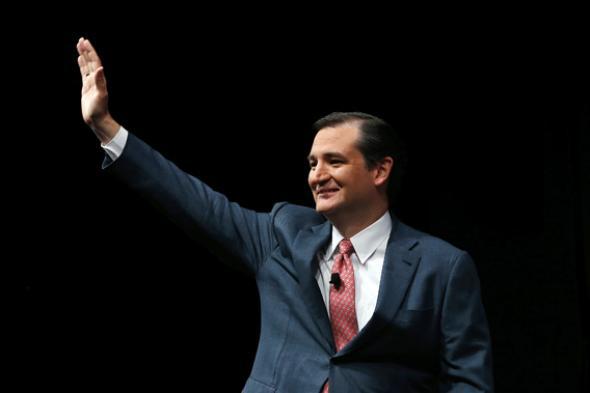For the first time since 2006, Republicans have control of the Senate. And what’s their goal for the next two years, ahead of the presidential election? To govern like a sensible party. “I don’t want the American people to think that if they add a Republican president to a Republican Congress, that’s going to be a scary outcome,” said new Majority Leader Mitch McConnell in a pre-holiday interview with the Washington Post. “I want the American people to be comfortable with the fact that the Republican House and Senate is a responsible, right-of-center, governing majority.”
That may be a tall order. The last time Republicans had political momentum, after the 2010 elections, they plunged the United States into a year of crisis governance, including a threat to default on the debt if they didn’t get concessions on spending cuts. The hit to the GOP’s popularity was enormous, and it played a part in the 2012 presidential election, where President Obama ran against the Republican-controlled House and its dysfunction.
Maybe McConnell can keep this from happening again. House Speaker John Boehner’s caucus was, and remains, an unwieldy beast of deal-making Republicans and conservative true believers. Yes, McConnell’s Senate has its share of the latter, but he doesn’t seem to face the same internal dissent as Boehner, who has had to fend off challenges to his speakership. And even in this era of “nuclear options,” filibusters, and party-line, parliamentary-style voting, party dominance is a little weaker in the Senate than the House. Not only are there still areas of crossover voting, but the present Senate has a healthy number of Republicans who represent Democratic states, who—ahead of an election year—have a vested interest in working with the opposition. Boehner risks rebellion when he defies the majority of his majority. McConnell doesn’t, at least not to the same extent.
Still, there’s cause for skepticism. Over the next year, reports Politico, Congress faces a number of critical legislative fights, not unlike the “fiscal cliff” of 2012. “These problems can’t be ignored and GOP leadership will have to decide if it wants to set up short-term solutions or negotiate permanent fixes to these long-lingering problems.” This year’s hurdles include Medicare reimbursements—and specifically, the formula for paying providers—the highway trust fund (which will be insolvent by May), and the debt ceiling. “These deals don’t come together quickly,” notes Politico, “and could require leaders to spend their hard-earned political capital on brokering compromises.”
For McConnell, this calculation is complicated by the composition of his majority. The 114th Congress brings a gaggle of new conservative senators on top of the existing bunch. In addition to Sen. Ted Cruz of Texas, who played Pied Piper to House Republicans during the 2013 shutdown drama, there’s now Sens. Tom Cotton of Arkansas, Joni Ernst of Iowa, and Ben Sasse of Nebraska, all of whom fall on the right wing of the Republican Party. You could also add Sens. Cory Garnder of Colorado and Thom Tillis of North Carolina to that list, given their previous careers as right-wing congressman and right-wing state house speaker, respectively.
It’s possible that, for these lawmakers, their true nature is more pragmatic than what was on display on the campaign trail. But, popular belief notwithstanding, politicians tend to stick to what they say. No, Sen. Ernst might not move to impeach Obama, but she could use her influence to make life difficult for him, and use these “cliffs” as a chance for legislative leverage. The same goes for Sen. Cotton. A vocal critic of immigration reform, he might use his new influence to join a potential showdown over President Obama’s immigration action. Indeed, as Greg Sargent writes for the Washington Post, the White House has promised a whole host of executive actions for 2015. Will conservatives react with calm? Or will they forgo a tactical approach for, as Sargent says, “maximum confrontation?”
We should hope for the former. The crisis governance of the last few years was a blow to the standing of our parties and institutions. Congress is incredibly unpopular, and that kind of anger can breed futility—a sense that the process can’t work. If nothing else, responsible Republican governance could counter this perception, and—per McConnell—potentially boost whomever the party chooses for its nominee in 2016.
With that said, if you are on Team Intransigence—if, like Sen. Cruz, your goal is to muck up the works—you aren’t without a case. In the last two years, you provoked a shut down and killed a bipartisan immigration bill. And what happened at the end of it? You won your largest majorities in almost 10 years.
A constructive Republican Congress might be good for our democracy, but an obstructionist one—that rallies the base and builds enthusiasm—might be better politics.
